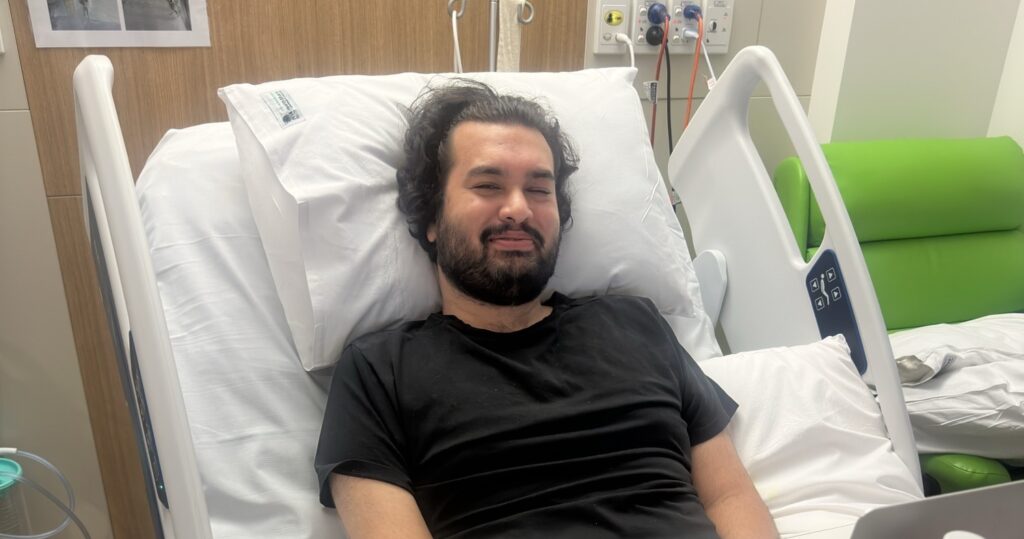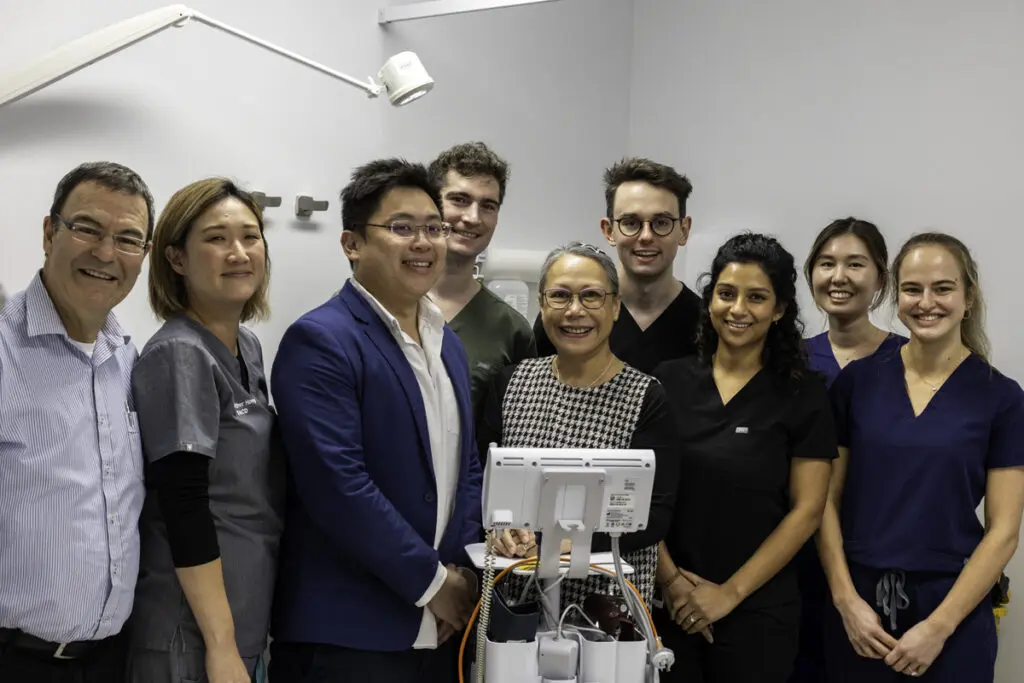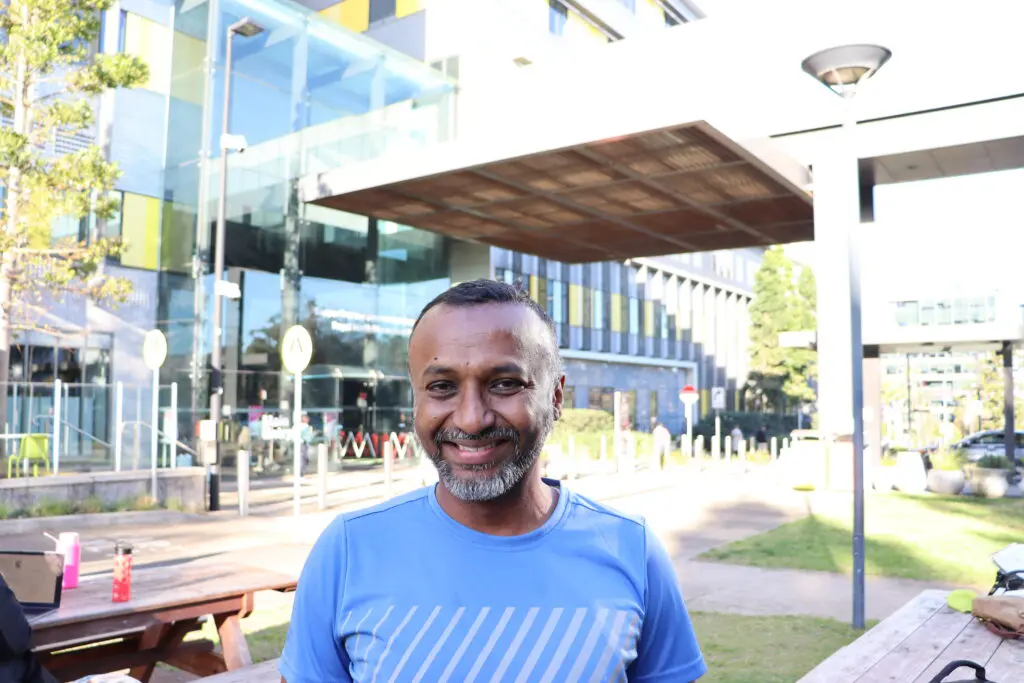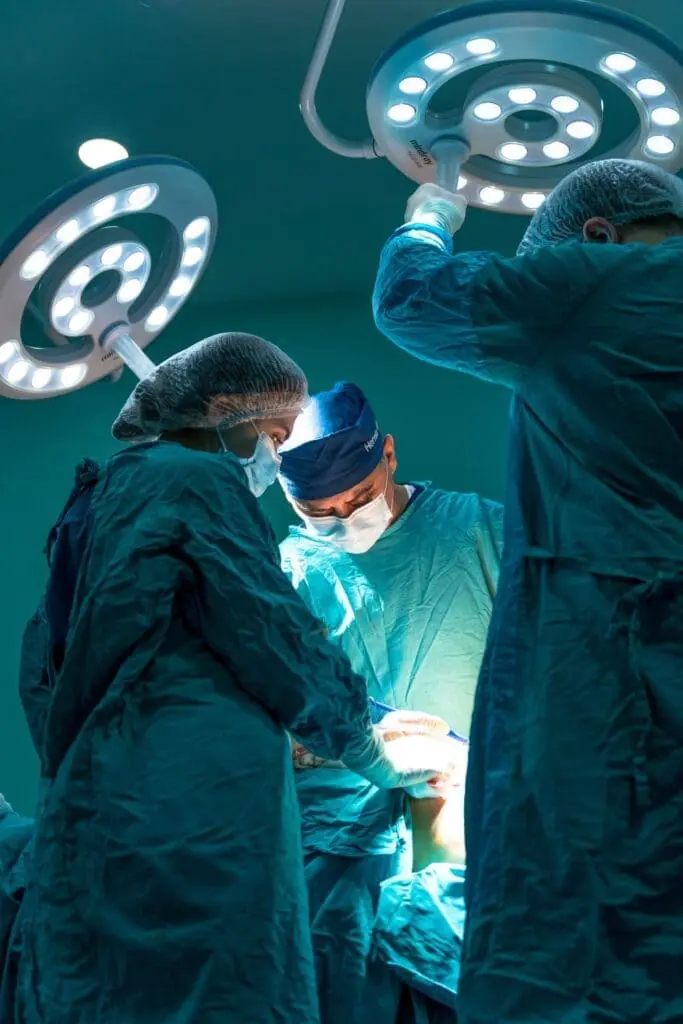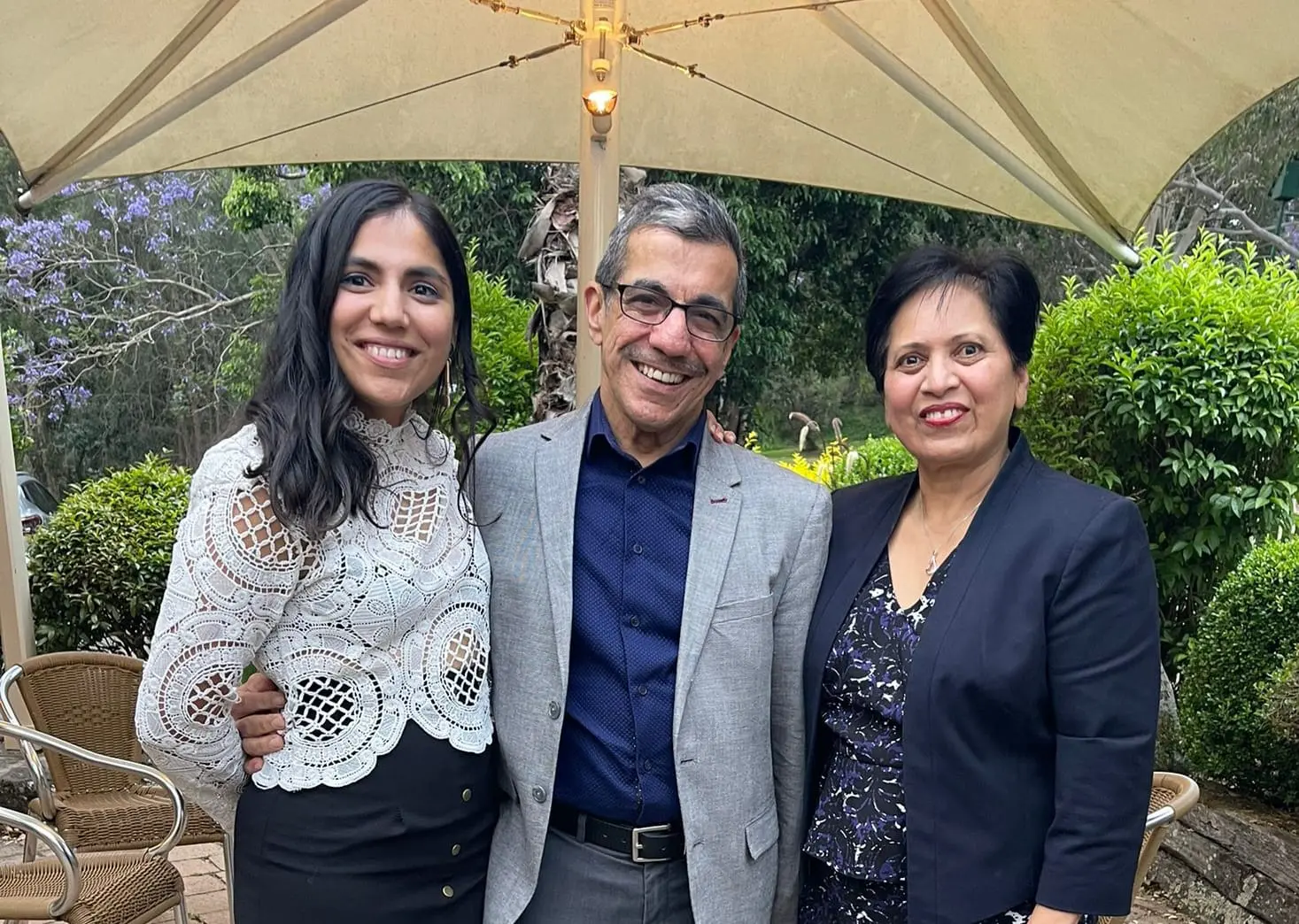
Anil’s decision to donate a kidney to a stranger through the Australian and New Zealand Paired Kidney Exchange (ANZKX) program became the key to saving his wife Neeta’s life. Their story highlights the life-changing impact of living kidney donation in the paired exchange program.
Kidney donation as a renal replacement therapy option
Anil’s wife Neeta was treated for chronic kidney disease (CKD), for several years. However, as her kidney function was deteriorating to the point where she required haemodialysis, Neeta was placed under the care of nephrologist Dr Bruce Cooper at Royal North Shore Hospital (RNSH), where the topic of a donor kidney was discussed as a renal replacement therapy option.
“I told my wife I wanted to give her one of my kidneys, and there was a bit of reluctance on her part, which was more towards my wellness and how it would impact me and my life.”
When Neeta commenced haemodialysis three times a week, it didn’t take long for her to accept that a transplant would be the best outcome for her. In January 2022, Anil contacted the renal team at RNSH to inform them that he wanted to be a living kidney donor for his wife. After commencing the transplant screening test, Anil was unfortunately advised that he was not a compatible blood type match.
At the time, Neeta’s only option was to join the 1,800 Australians waiting for a kidney donation from a deceased organ donor which could take an average of four years.
However, Anil was excited to learn through his nephrologist Dr Yvonne Shen that even if he wasn’t a match for Neeta, they could participate in the ANZKX program which increases the number of living kidney donations by anonymously matching incompatible kidney donor and recipient pairs with other incompatible pairs across Australia and New Zealand.
As Anil saw the burden of dialysis that Neeta was experiencing, he didn’t hesitate to register and become a kidney donor to help a stranger in need of a kidney transplant. As Anil says, “I have a pair, so why not share!”
Nearly a year later, Anil was informed a donor kidney had been matched for Neeta. He remembers that call very clearly. “It was life-changing,” said Anil. “I was totally elated.”
Jessica, the donor work-up nurse from the RNSH renal department, advised Anil the surgeries would occur within the next few months. Jessica met with Anil and explained the transplant procedure and post-operative management in greater detail, which gave him further confidence in his decision.
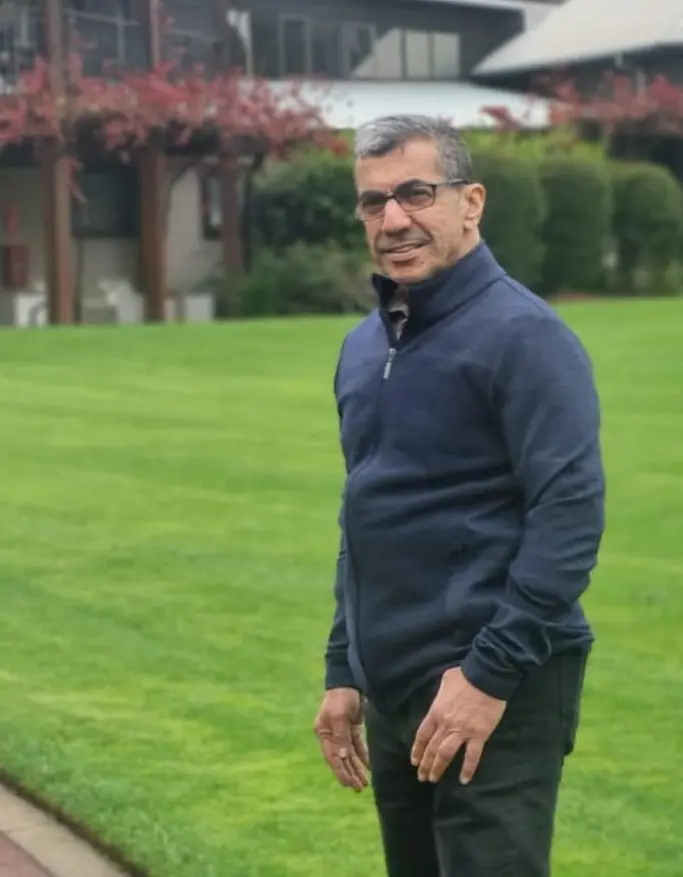
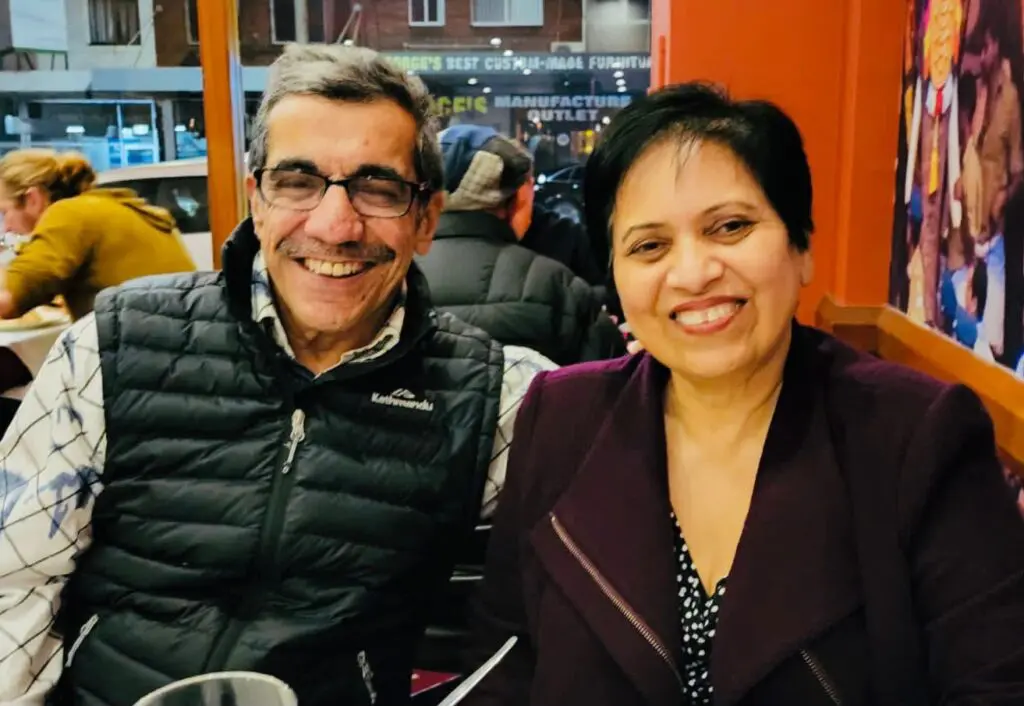
Life-changing kidney transplant surgery
Anil was in awe of the compassion shown by the renal surgical team at RNSH. Neeta’s surgery commenced in the evening by transplant fellow Dr Aasim Khan and his surgical team. In the early hours of the following morning, Dr Bruce Cooper called Anil to tell him that his wife was out of surgery and the donated kidney was functioning and passing urine.
Anil’s surgery was scheduled a week later, and he was admitted in the early hours of the morning for surgery. He was amazed that specialist urological surgeon Dr Matthew Winter and his surgical team were waiting for him – all bright-eyed and rearing to go even though the sun wasn’t up. Following his surgery, Dr Bruce Cooper woke him to let him know his surgery went well.
“Kidney transplantation is life-changing for someone who has kidney failure. Living kidney donation gives the recipient the best chance of a successful long-term outcome.”
Dr Cooper explained that kidney donation via the ANZKX program enables patient pairings to proceed with transplantation who would have previously been unable to do so. The donors that are part of a matched pairing all usually have their operations starting at the same time in whichever city they are in across Australia and New Zealand.
However, in Anil’s case, he was a bridged (delayed) donor, a less common type of donor via the ANZKX program. He enabled a whole second chain of donor-recipient pairs to go ahead, which helped maximise the benefit received by his single donation.
Over a year post-surgery, Anil reports that he and Neeta are both well, extremely grateful to be able to enjoy quality time with their family and friends without the restrictions that dialysis brings.
“Transplant surgery is clever and wonderful,” said Anil. “The dedication of the medical and surgical teams at Royal North Shore Hospital was amazing.” The care and ongoing support by the dedicated renal team have been pivotal for Neeta’s post-transplant journey.
Anil says that a living kidney donation cannot only lead to one life-changing situation, but it can help facilitate a long kidney donation paired chain, leading to multiple transplants.
In 2023, there were 831 kidney transplants and of these, 253 were from a living kidney donor – someone who usually donates directly to a relative or close friend.
If you would like to support the renal team at RNSH, please donate here.
